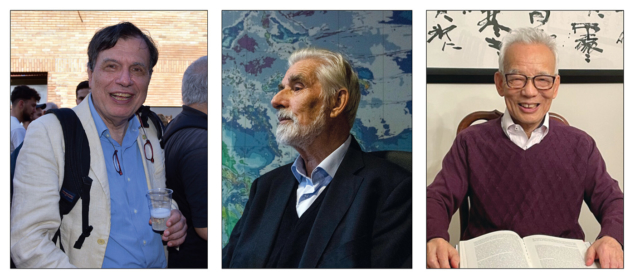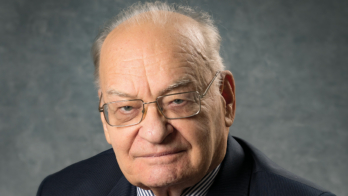
On 5 October, Syukuro Manabe (Princeton), Klaus Hasselmann (MPI for Meteorology) and Giorgio Parisi (Sapienza University of Rome) were announced as the winners of the 2021 Nobel Prize in Physics for their groundbreaking contributions to the understanding of complex physical systems, which provided rigorous scientific foundations to our understanding of Earth’s climate. Sharing half the 10 million Swedish kronor award, Manabe and Hasselmann were recognised “for the physical modelling of Earth’s climate, quantifying variability and reliably predicting global warming”. Parisi, who started out in high-energy physics, received the other half of the award “for the discovery of the interplay of disorder and fluctuations in physical systems from atomic to planetary scales”.
In the early 1960s, Manabe developed a radiative-convective model of the atmosphere and explored the role of greenhouse gases in maintaining and changing the atmosphere’s thermal structure. It was the beginning of a decades-long research programme on global warming that he undertook in collaboration with the Geophysical Fluid Dynamics Laboratory, NOAA. Hasselmann, who was founding director of the Max Planck Institute for Meteorology in Hamburg from 1975 to 1999, developed techniques that helped establish the link between anthropogenic CO2 emissions and rising global temperatures. He published a series of papers in the 1960s on non-linear interactions in ocean waves, in which he adapted Feynman-diagram formalism to classical random-wave fields.
Parisi, a founder of the study of complex systems, enabled the understanding and description of many different and apparently entirely random materials and phenomena in physics, biology and beyond, including the flocking of birds. Early in his career, he also made fundamental contributions to particle physics, the most well-known being the derivation, together with the late Guido Altarelli and others, of the “DGLAP” QCD evolution equations for parton densities. “My mentor Nicola Cabibbo was usually saying that we should work on a problem only if working on the problem is fun,” said Parisi following the announcement. “So I tried to work on something that was interesting and which I believed that had some capacity to add something.”
As per last year, the traditional December award ceremony will take place online due to COVID-19 restrictions.





